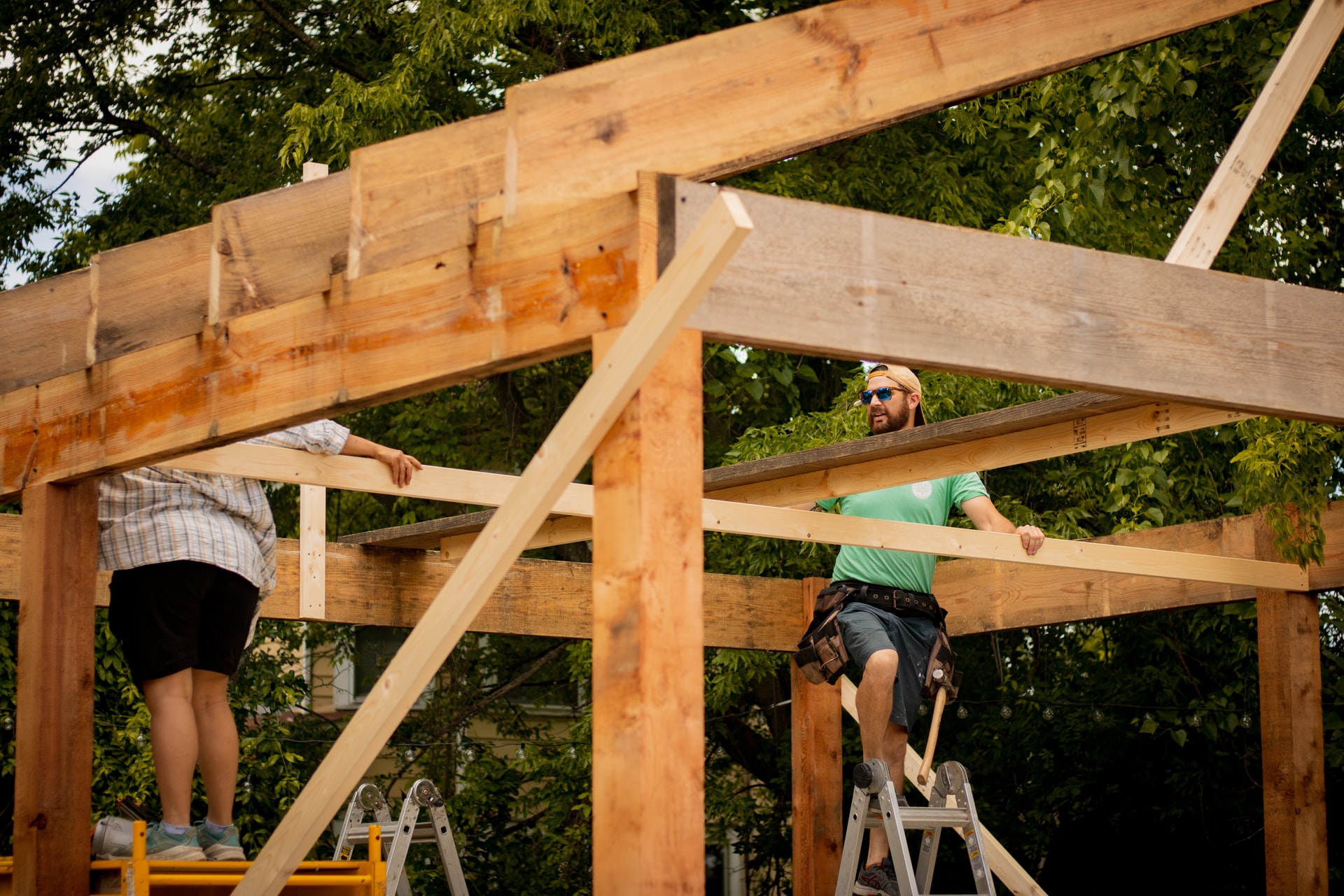If you are a freelancer, contractor, self-employed, or anything like that, I need you to avoid contractor burnout! This is a bit long but it might be the most important thing you read this year.
A hundred years ago I was in the Computer Information Systems program at ISU getting ready for an awesome corporate career. I was also, though, very interested in figuring out how to provide some services on the side that would create additional income.
Somehow I networked into a realtor who needed a website. We talked about what she wanted and I delivered a site to her for $400. That was serious money for a poor, married college kid!
I’ve had other freelance/contractor work over the years. I’ve been a contract ghost writer, I’ve done contract web work, I’ve done one-off consulting, and various other things to supplement my income and skills/training.
On the other side of the table I’ve hired plenty of contractors. From helping with my businesses to helping with remodeling, I’ve probably hired dozens of contractors over the years. I’m intrigued by what makes a contractor/freelancer successful. I have some strong opinions on that… but in this post I want to focus on the critical issue of burnout. I see too many contractors who are excited about “not having a boss,” or being able to charge more per hour than if they had a job, but the reality of being a contractor can be quite different than your expectations.
I want to share ideas on what can help you avoid contractor burnout. If you cross the line on any of these items you can find yourself hating everything about being a contractor and trying to find a job. If you avoid contractor burnout, though, you could have a rich and rewarding career that gets you away from things you think you dislike about working for a boss in a corporate environment.
Avoid Contractor Burnout by Bidding Well
This is a huge one. People don’t understand what they are worth (or, put differently, what the value they bring is worth). I’ve seen new contractors try to underbid competitors, even wondering why in the world their established competition would ever bid a project so high!!
And so they underbid, get the project, and find there is no margin in it. Or they find they are losing money.
I have multiple stories of bad bidding. One time I was in a new role and the boss had already bid a project. It was based on 100 hours of our work…. turned out we needed 400 hours to get the job done. This was a painful project. We had to eat it because of the ongoing relationship, and the fact that the bad bidding was my boss’s fault. Of course, we could have gone back and asked for adjustments, but there were reasons we didn’t.
Bidding based on what you might make per hour, if you were an employee, is dangerous.
There are lots of ways you could bid poorly. I’m not saying you need to be the highest price out there but you definitely need to understand your expenses (including opportunity cost) and your value. There are books and articles on pricing… please invest in your business by learning the art of pricing so you can have a healthy and sustainable business.
Doing this can certainly help you avoid contract burnout. Avoiding this will lead you to a point of desperation and maybe even bankruptcy.
Take time off, and budget for it
One of the fun ideas of working for yourself is that you will be able to take time off whenever you want, for as long as you want as long as you have a solid business. The level of flexibility you can have as a contractor can be a lot more fun than abiding by seemingly outdated corporate policies.
When you are first getting started this might not be a reality. You are anxiously working on figuring out your marketing funnel, finding people, getting customers, and delivering on work.
After a while, though, with systems and place and financial pressures lowered, you find yourself with a few days or weeks here or there. You vacation. It’s wonderful. You love your life.
What if “after a while” takes ten years? Can you imagine going strong for ten years without a break?
When I first started JibberJobber I worked all the time. I rolled out of bed around 4 or 5 in the morning and worked until late at night, six days a week. I was ANXIOUS to not fail. Anxiously engaged had a whole new meaning in my mind. I know I wrote blog posts on some holidays because I felt like I had to. And I did. Partially to build my business and partially because my brain was there so “taking time off” would have been me being a zombie, not enjoying time off, but mentally in my business.
This is not healthy over the long-term. We need to rest, relax, and rejuvenate. This means different things for different people. Maybe it means you just schedule a whole day off and read or watch movies. Turn off your phone and don’t check your emails. Or, maybe it means you drive a couple hours away and go to an Airbnb. Maybe it’s just making sure you get some friend time over dinner or video games or whatever.
You HAVE TO take time off. Schedule this in and then honor that schedule. This is critical to avoid contractor burnout.
Spec Projects Correctly
Remember that 400 hour mistake? I do too. I talked about bidding, above. Closely related but deserving its own section is spec’ing projects. If you don’t learn how to spec a project well you run the risk of either overbidding (because you thought the project was too much) or losing all of your profit. Worse, you might lose a lot more than your profit: you might pay to actually win the project!
Project specs are critical to project success. Everyone involved in a project can do the right work if the specs are good. Here’s an example of bad specs:
“Build a house.”
Um… how big? How many stories? How many bedrooms, bathrooms, etc.? What exactly is a house? Does a dog house count?
Spec’ing a house might be dozens, hundreds of pages. I’m not saying your specs need to be hundreds of pages. This can take a ton of work. Your specs will impact your bid, your expenses, the contractors you hire, etc.
More important, your specs will impact when the customer agrees you are done. “Build a house” might lead to, “hey, where’s my finished backyard? There’s not even a fence!” A housebuilder would say a fence is not part of a house but I am sure there are people who are thinking you are going to build them an entire home environment, which includes a backyard and maybe even a fence.
Whether you spec a physical thing like a house or a custom closet, a virtual thing like a website, or consulting, you need to define your boundaries. What is your final deliverable going to look like? What will you NOT do?
You could list things you don’t do, as well as things that aren’t included but could be for a fee (which should be agreed to before you do them).
I can almost promise you will not be good at this your first, or first dozen, jobs. But you’ll get better over time. Each time you do it you’ll find a gotcha that you missed and swear you’ll include it in your next bid/proposal/contract. Please be very purposeful about this. Take those first few mistakes as learning opportunities and get better with each project you work on. Doing this wrong will result in the same issues as bidding wrong.
How do you do this? Get really good at asking better questions and actually and actively listening.
Once you get good at this, though, you are on the road to avoid contractor burnout!
Become an excellent communicator
I need better communication. I tell that to my contractors. I tell it to me team. I tell it to everyone. I expect you to be a proactive communicator.
When you communicate well, as a contractor, you reduce surprises. You can increase trust with your clients. When you increase trust your customers might be more understanding with delays or mistakes. Better communication, which means frequency as well as an appropriate level of detail, can help avoid the “I didn’t ask for that!” surprises.
I want to like the people I work with. I don’t need overcommunication. Please, for the love of all things living, don’t think that you can start to send me videos of your vacations, or cute memes, or heaven forbid, political stuff. Even if you talk about politics, I’d keep that off of your official communication. Stay on task, stay professional, and communicate the right things. But for sure you can be friendly.
More important than being your friend, though, I want to know I can trust you. I want to know I made the right decision hiring you. I want confidence in your work, work ethic, and integrity. You might be working furiously at getting me the best results but if I go weeks or months without a peep I can only assume. Are you even working on my stuff? Is this going to be delivered on time? Am I going to get what I need?
Think about communication on a spectrum. On one end there is no communication. On the other end there is excellent communication. How will you and I feel with excellent communication? How would we feel with no communication? Figure out where you are and then work towards excellent communication. You’ll avoid a lot of heartache and stress if you communicate well.
You’ll also earn repeat customers and referrals because too many contractors are so busy with other things they aren’t communicating well with customers. Instill confidence while you avoid contractor burnout with excellent communication.
Have a change-order system
If your work has any complexity to it, or is customized to any degree, you’ll likely have changes. Lots of times these are “little changes.” “Oh, I have a little change…”
Um, I’ll be the judge of how “little it is.” As a side note, don’t let your clients tell you something is little with the idea you can slip it in. Maybe you can but you have to judge that.
Plan for changes. Right now I have a contractor ripping up a little bit of flooring to determine a certain problem. The little problem, which is maybe 2 feet by 2 feet of poorly poured concrete has become a much bigger issue. Of course it has. The flooring was hiding problems.
I, the customer, want the whole thing fixed correctly. I could say, “okay, great, do it.” But when it’s time to settle, how is this compensated? How much more do I pay? Or is it included?
You have to get this right or even if you bid something well you’ll spend time doing work that wasn’t in the bid and lose money and time. Maybe you concede to throw a few things in, or swap something out for something else, but if this isn’t documented you’ll regret it.
Create a change order system (there are plenty on the market, or you can use a shared document). Use this system. Don’t think something is too small to document. Don’t think you’ll remember to document it later. You have to do this right or it will eat your lunch, all your profits, and your peace of mind. The better your documentation is, and approvals for changes (get these in writing if it impacts money), the better your business will be. Trust me, this will definitely help you avoid contractor burnout!
Don’t Fall Behind on Collections
You MUST respect cashflow. Your business will live or die based on how well you manage your cashflow. Part of this means you need the right cash coming in at the right time.
Sometimes you will feel timid asking your client to pay their bills to you. Don’t feel timid. Your mortgage company doesn’t feel timid asking you to pay your bills.
When you run your own shop you are the person responsible for making sure clients pay. This might mean you don’t take some clients. It might mean you take a lot upfront instead of when you deliver your work. It might mean you set up a healthy financial schedule so you get progress payments as you hit deliverables. Note that excellent communication on your part will help get those progress payments made.
Learn to be confident asking for money. You chose to run your own business and this is one of the most important skills you need to master or else your business will fail.
One of the most important things I did when I started speaking professional (which was basically a one-time consultancy) was to get 50% of payment when a contract was signed, which secured me for that date, and then 50% when done. Most of the time I’d come home with a check for that second 50%, but sometimes with massive organizations I’d have to wait another month or two.
I didn’t love that but I knew it was coming, and it was okay. I planned for it.
For the most part, though, I knew when I’d have money coming in. Knowing that helped me plan and budget.
There are two parts to this. First is to get over your emotions and feelings about asking for money. It’s just a business transaction. If you ran the cash register at Taco Bell you wouldn’t timidly tell someone how much their lunch order was, would you? They made an order, they understood the price, and they knew they pay you before you submit your order to the team in back.
Same thing with your own business. It’s just how you do business.
The second part is to set up your policies and systems. Want half down? Just ask for it. Make that a part of your pricing conversation. If you want to negotiate, fine. You can break or bend your own policy. If it bites you, learn from it and maybe don’t bend next time.
Selling is great. Revenue is awesome. Profits are fun. But cash… cash is king. This becomes internalized when you run a business and have a big accounts receivable you are waiting for. AR doesn’t pay the mortgage.
Take Care of Your Body
“Take care of your health or your health will take care of you.” I read that, or something like it, a few years ago. I spent the first year or two NOT taking care of my health and I still regret that.
You do not have to have a gym membership. You don’t have to get expensive equipment or fancy clothes. You should use gravity and spend time doing things for your body. Walking is amazing. Just about anything you need to do for your exercise can be done at home.
Choose better food. Less on the donuts and more on the greens. Less soda and more water. I’ll even go out on a limb and say less booze, less energy drinks, and avoiding bad drugs.
Make sure you get good sleep. If you need to leave your phone or laptop in another room, not your bedroom, then do that.
If you don’t take care of your body you won’t be able to take care of business, and it could take years to recover your health and finances.
Take care of your body to avoid contractor burnout.
The End
No, really, this is the beginning. Rededicate yourself to having an empowering and fun career. You can do this. Even if you get a job, you have become more empowered by learning how to earn income.
These ideas can help you in your future jobs. It can also help you grow a healthy business that takes care of you for years to come.
Anything you’d like to add? Throw in a comment below or add to this Twitter post.







